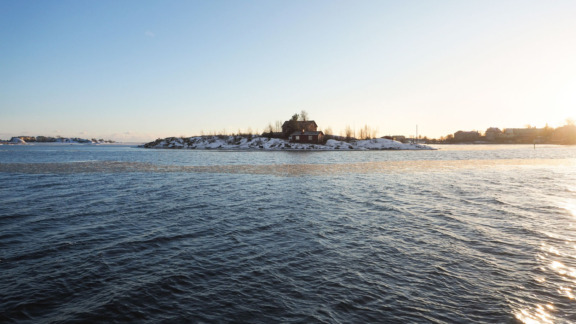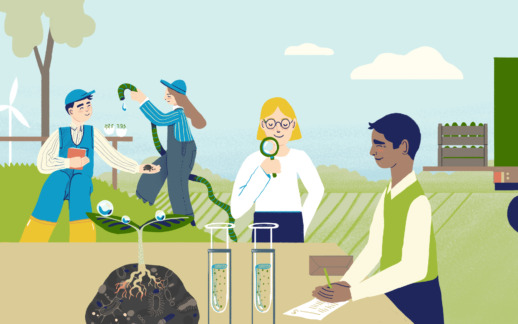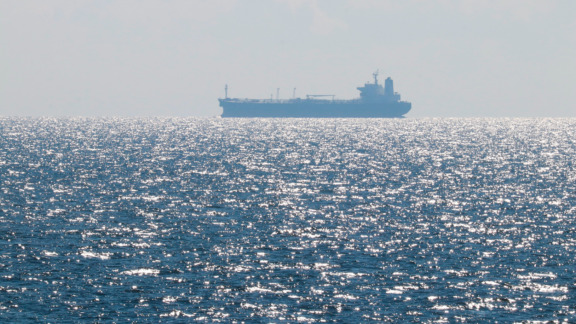BSAG Report from St. Petersburg Baltic Sea Forum
01.05.2013 |
The Baltic Sea Action Summit (BSAS) was held in St. Petersburg in 2013 under the name Baltic Sea Forum. The Forum was convened by PM Dmitri Medvedev on April 5–6, 2013.
Participants included the Prime Ministers of Russia, Norway, Finland, Estonia, Latvia, Lithuania and Iceland as well as the Deputy Prime Minister of Poland. The Russian, Swedish, Finnish and German Ministers of Environment as well as the Danish Minister of Trade and Investment also took part.
In the summit’s opening session, PM Medvedev pointed out that the BSAS process, which was launched in Helsinki in 2010, is viable and is an important tool for Baltic Sea operations by states and the private sector. Medvedev began by stating that there is no other option but to pursue international co-operation in order to save the Baltic Sea. He also announced that Russia will begin measuring and reducing its ships’ atmospheric emissions in all Russian Baltic Sea ports. Atmospheric emissions will also be measured in all settlements with a population of over 100,000.
The Prime Minister further stated that the water purification issues in Kaliningrad will be dealt with. Medvedev concluded by saying that the St. Petersburg Initiative to be launched during the Forum will become another useful channel for co-operation between the private and public sectors, and it will add weight to the Baltic Sea issues.
At the press conference held after the opening session, Medvedev also announced that the Russian Federation will be investing in the treatment of hazardous waste in Krasny bor.
After this, President Tarja Halonen brought greetings from the Baltic Sea Action Summit in Helsinki. She said that a lot of good had been done and what is called for now is closer co-operation between states as well as the different sectors of the society to reach set goals.
Other ministers stressed the importance and continuity of the BSAS process and reported on the progress made in the Commitments of their respective states. Russian Minister of Natural Resources and Environment Donskoi emphasized the importance of co-operation between the public and private sectors (Public-Private Partnership; PPP). Finnish PM Katainen referred to e.g. Outotec Oyj’s Commitment to purify mine water using new methods as a good example of this as well as the international CleanTech co-operation. Katainen also announced that Finland will continue its “Finland as a forerunner in nutrient recycling” project.
Denmark stated that it will be supporting HELCOM’s work on the Baltic Sea and take part in North-Western Russia’s energy saving projects.
European Commissioner for Regional Policy Johannes Hahn pointed out that the environment does not need people, but people need the environment. This statement describes well the change in the political world’s attitude towards environmental issues, and this change is one of the most important goals of the BSAS process.
Another strong theme in several speeches was the significance of liquefied natural gas (LNG) in the Baltic Sea region’s energy economy, especially as the future clean energy source for shipping. Estonia, Poland and Germany announced that they will be investing in the use of LNG in shipping. Poland also announced that it will be introducing satellite technology into the control of emissions.
At the end of the session, BSAG’s Chairman of the Board Ilkka Herlin told that the foundation has received 110 new Commitments from the private sector and that the Baltic Sea states have reported on the progress of their Commitments to the foundation. Pointing out that no one can save the Baltic Sea alone, Herlin invited all parties from all countries to take part in the common effort.
During the second day of the Forum, the participants were divided into four round tables for themed discussions: eutrophication, economic and ecologic innovations, biodiversity and marine environmental planning.
The main purpose of this summit was to highlight the challenges and solutions of the Baltic Sea. This goal was reached successfully, especially in Russia, where news coverage was strong. Another important function was to enable free communication between different parties within the framework of a common theme. This goal was also reached successfully both at the state level and at the private sector level. The Prime Ministers and Ministers of the Environment of several countries were able to meet their colleagues in bilateral discussions, and business executives met one another, creating new possibilities for co-operation.
BSAG had set some important goals for itself as well as for the Summit: implementation of proper water treatment in the Ääninen-Laatokka-Neva catchment area; actions towards solving the hazardous waste treatment issue in the St. Petersburg area; solutions for the animal manure issue in the Leningrad oblast; and actions related to safer shipping.
All set goals were met: PM Medvedev stated that the Krasny bor landfill issues would be dealt with; Director General of the Vodokanal of St. Petersburg Felix Karmazinov presented the organisation’s Commitment dealing with water treatment solutions in Leningrad oblast and Karelia, including use of use of chicken manure as energy source. Taking into account Commitments and investments by several other parties in using chicken manure, and discussions related to oil combat, it can be said that the Summit’s results were significant.
During the event, directions of the development of the Baltic Sea region were also highlighted: shipping must conform to IMO’s upcoming fuel regulations, and this will create demand and distribution needs for liquid gas. On this subject, Russian Gazprom and Danish shipping company Maersk presented their large-scale co-operation project in the round table discussions. AGA-Linde Gas also relates to the theme, as it will purchase natural gas produced from chicken manure once the facility planned by Rika Biofuels Ltd is operational.
This development will benefit the Baltic Sea in many ways: the sulphur discharges of shipping will be reduced, nutrient run-off from manure into the Baltic Sea will cease, the nearly free energy from manure can be harvested, and methane discharges into the air from manure will be reduced.
Another interesting piece of news was that the Danish brewery Carlsberg has invested and will keep investing significant sums in the improvement of agriculture and water treatment in North-Western Russia. The World Bank and a group of other investors are also willing to fund Russian environmental projects in different ways.
EU Director of Sustainable Development and Integration Timo Mäkelä suggested the creation of a new water centre for EU and Russia. This centre would serve to standardize criteria for water quality and measuring methods.
Another important breakthrough was Russian Minister of Natural Resources and Environment Donskoi’s statement that Russia is preparing to implement Marine Spatial Planning (MSP).
Towards the end of the Forum, the new St. Petersburg Initiative (SPI) was approved. The contents of the initiative are still to be worked out, but the Forum elected Felix Karmazinov and Ilkka Herlin as members of the planning committee. They were given the task to present the results of their planning at HELCOM’s ministerial meeting in October 2013. SPI’s function seems to be to bring together actors from the Baltic Sea region’s private sectors. In order to minimize overlap and costs, public sector actors would not be part of the SPI group.
The planning and implementation of the Baltic Sea Forum in St. Petersburg gave BSAG many new important co-operation partners and relationships. BSAG’s task from now on is to use these new relationships for assisting the implementation of the announced actions. In this, the new SPI can become a powerful tool.
Through SPI, BSAG also hopes to be able to influence the processes and mechanisms related to the Baltic Sea more efficiently. This is becoming increasingly important, as BSAG is focusing its efforts on nutrient recycling and treatment of hazardous materials in sludge and manure. As these topics are challenging and extremely diverse, it is important that as many Baltic Sea states as possible will have activities based on BSAG’s catalytic role between the public and private sectors.
The St. Petersburg Forum was one of the largest lobbying projects in Northern Europe, as the persistent efforts of BSAG succeeded in getting the Russian government to mobilize the prime ministers of 11 states as well as gaining the special focus of EU in protecting the Baltic Sea. Additionally, BSAG and the Russian Ministry of Natural Resources and Environment formed a partnership within which the Russian government will direct Russian economic life to focus on environmental issues in the Baltic Sea region. BSAG’s concept of Commitment also received confirmation in St. Petersburg. The Finnish government’s Baltic Sea program and Russian environmental protection policies are both committed to continuity.



